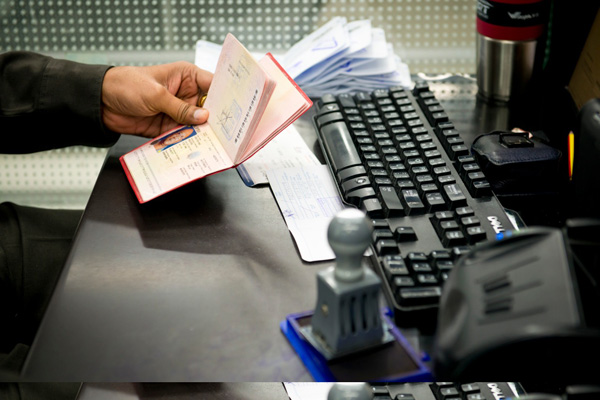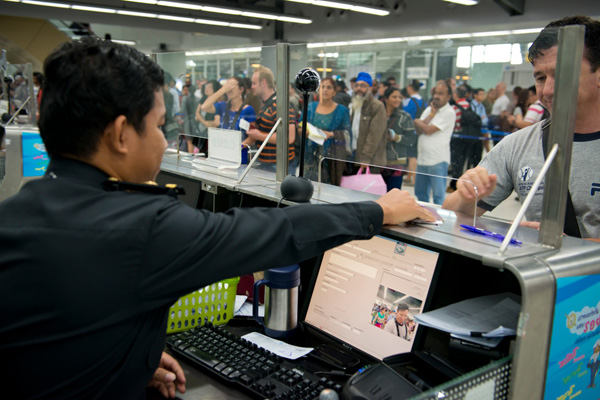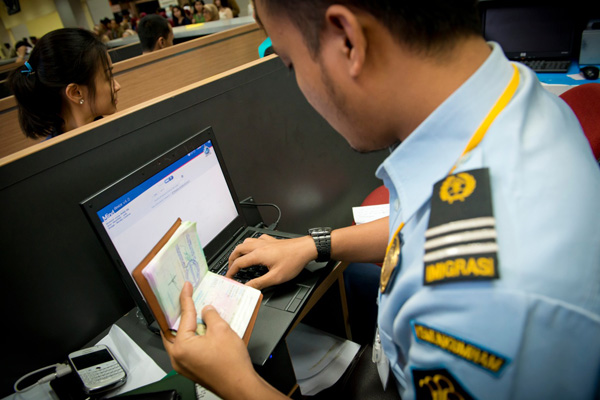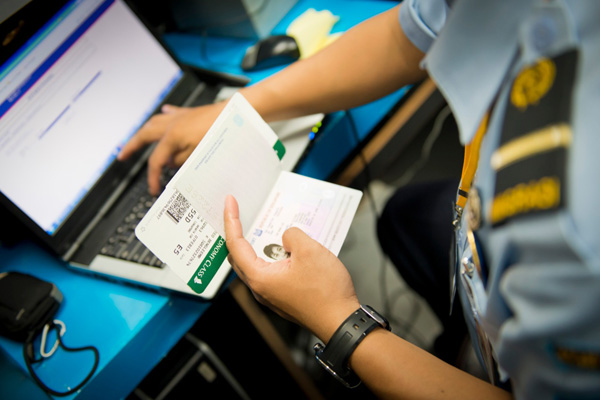LYON, France – A check against INTERPOL’s databases as part of security operations surrounding the Southeast (SEA) Games in Myanmar has led to the identification and arrest of a US fugitive in the Philippines.
The 45-year-old man, the subject of an INTERPOL Red Notice for internationally wanted persons issued at the request of NCB Washington for financial crimes, was taken into custody at Manila’s Ninoy Aquino International airport after his passport triggered an INTERPOL alarm revealing his ‘wanted’ status. He is currently being held in Manila pending deportation to the US.
At the request of Myanmar authorities, an INTERPOL Major Events Support Team (IMEST) was deployed to the country ahead of and during the SEA Games (11 – 22 December) to assist in the preparation, coordination and implementation of security arrangements.
Operation Dove, the border security operation run throughout the games under the INTERPOL Integrated Border Management Task Force (IBTMF), saw officers carry out passenger screening, focusing on those travelling to or from Myanmar at 11 airports across 10 countries – Brunei, Cambodia, Indonesia, Laos, Malaysia, Myanmar, Philippines, Thailand, Timor-Leste and Vietnam.
“Our participation in Operation Dove reflects Myanmar’s commitment to global law enforcement efforts in combating transnational crime and we hope to further build on our cooperation with INTERPOL,” said Brigadier General Soe Myaing, Head of Department Transnational Crime, Myanmar Police Force .
“The combination of training followed by an operation means that officers can immediately use the skills they have developed and see first hand the results of regional and global cooperation in securing our borders,” added the Brigadier General.
Nearly 740,000 checks against INTERPOL’s databases were carried out during Operation Dove, resulting in 11 hits where the traveller was flagged as either being wanted internationally or was carrying a passport registered in INTERPOL’s Stolen and Lost Travel Documents (SLTD) database. The SLTD database currently contains more than 39 million documents from 166 countries.
“The arrest of the US fugitive and identification of other wanted persons during the SEA Games was a direct result of Myanmar’s request for INTERPOL’s assistance combined with the strong support provided by the other involved member countries,” said Michael O’Connell, INTERPOL’s Director of Operational Support.
“The success of this operation demonstrates the added value that INTERPOL can bring when our global tools are made available to officers in the field, particularly at border control points where every additional security measure is vital,” concluded Mr O’Connell.
IBMTF – with support from other specialized units – takes the lead in coordinating INTERPOL initiatives involving border security and plans and coordinates border security management policy. Operations conducted under the IBMTF umbrella throughout Africa, Southeast and Central Asia in 2013 have involved nearly 30 countries.
It also works to enhance the capacity of border security in INTERPOL member countries, develops partnerships with international organizations and the private sector, and allocates resources to border security initiatives.
The Government of Canada has provided substantial funding for IBMTF operations and initiatives including the INTERPOL Capacity Building Programme on Counter-Terrorism in Asia.








